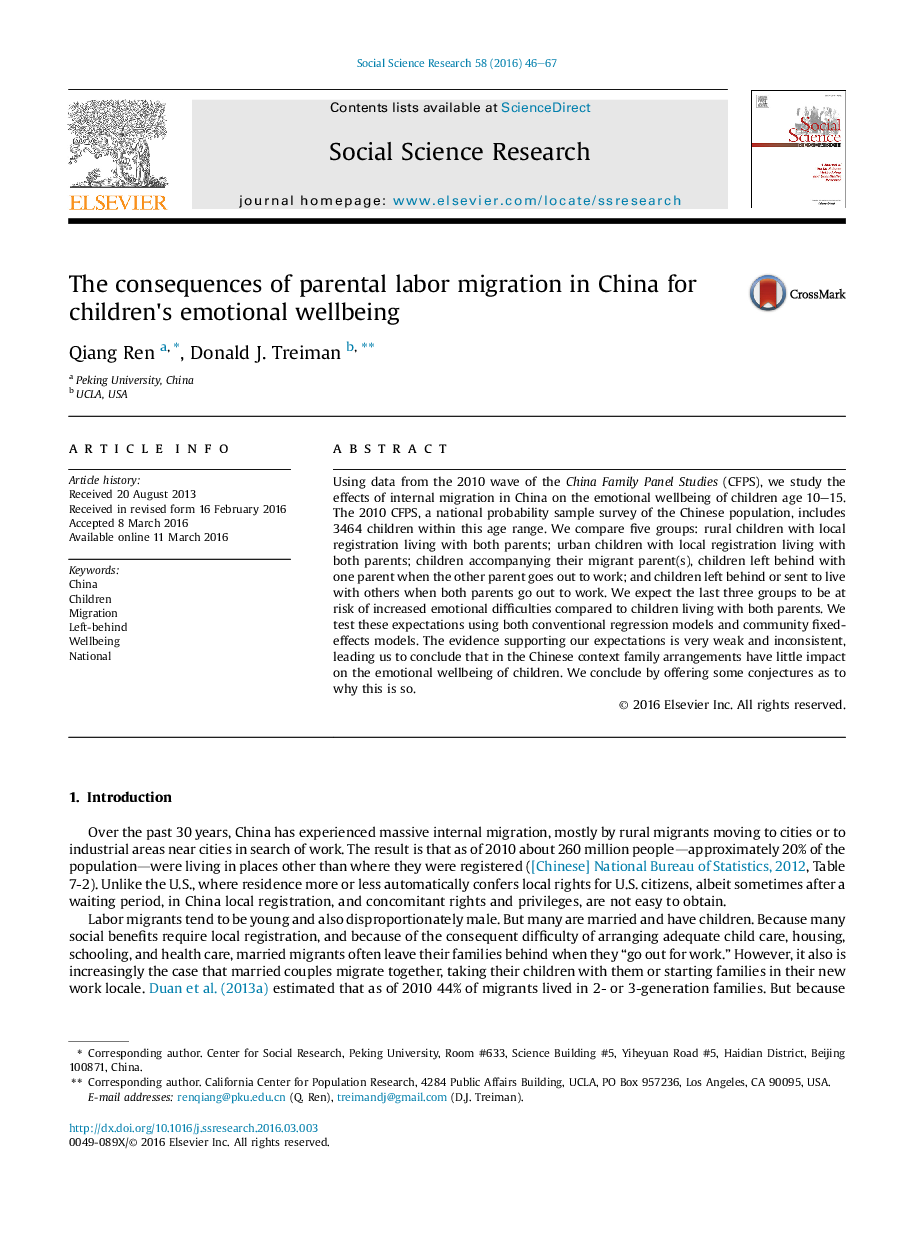| Article ID | Journal | Published Year | Pages | File Type |
|---|---|---|---|---|
| 955577 | Social Science Research | 2016 | 22 Pages |
•We study the effects of internal migration in China on children's emotional wellbeing.•Our data are from a 2010 national probability sample of Chinese households.•We find few negative consequences, for either migrant children or children left-behind.•Our conjecture: Chinese migrant families remain socially intact even when physically separated.
Using data from the 2010 wave of the China Family Panel Studies (CFPS), we study the effects of internal migration in China on the emotional wellbeing of children age 10–15. The 2010 CFPS, a national probability sample survey of the Chinese population, includes 3464 children within this age range. We compare five groups: rural children with local registration living with both parents; urban children with local registration living with both parents; children accompanying their migrant parent(s), children left behind with one parent when the other parent goes out to work; and children left behind or sent to live with others when both parents go out to work. We expect the last three groups to be at risk of increased emotional difficulties compared to children living with both parents. We test these expectations using both conventional regression models and community fixed-effects models. The evidence supporting our expectations is very weak and inconsistent, leading us to conclude that in the Chinese context family arrangements have little impact on the emotional wellbeing of children. We conclude by offering some conjectures as to why this is so.
